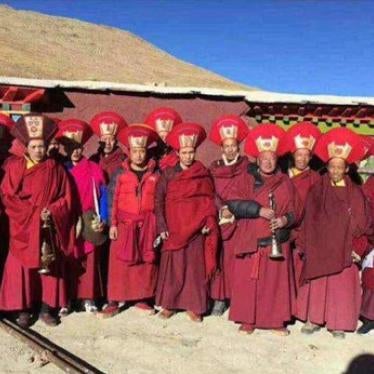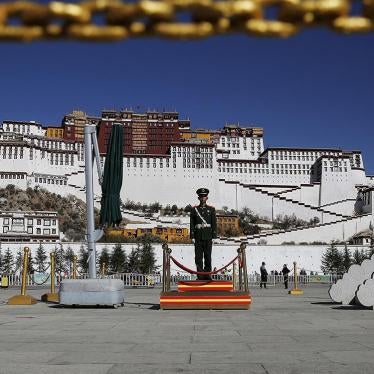(New York) - Chinese President Hu Jintao, who on July 7, 2009 abruptly left the G8 Summit in Italy to return to Beijing to cope with the Xinjiang protests, should break with past practice and acknowledge Uighurs' grievances, Human Rights Watch said today. Analysts expect that Hu will speak publicly about the developments in the coming days.
The Chinese government has never admitted to human rights abuses in the Xinjiang Uighur Autonomous Region (XUAR), home to 8 million Uighurs. Human Rights Watch has documented egregious restrictions on religious, political, educational, linguistic, and economic rights in the region.
"It's increasingly clear that both Uighurs and Han have engaged in violence in recent days," said Sophie Richardson, Asia advocacy director at Human Rights Watch. "But the cycle of violence will only erupt again if the government doesn't even acknowledge its repressive policies' role in creating the volatile atmosphere of resentment in Xinjiang."
On July 5, Uighurs took to the streets of Xinjiang's capital, Urumqi, to protest abusive treatment by the Chinese government. It remains unclear how the protests became violent, and unclear how many Uighur protesters were killed by Chinese security forces or how many Han Chinese were killed by Uighur rioters. By July 6, the Chinese officials reported 156 deaths and more than 800 casualties.
Since that time, Chinese officials and state media have blamed Rebiya Kadeer, the leader of the Uighur diaspora, for organizing the protests, and promised to execute those found to have been involved in the Urumqi protests. Although the Chinese government has permitted foreign correspondents to remain in the region - an unusual and positive development - it has at the same time moved swiftly to censor information domestically about the protests.
Similar protests erupted in Tibet in March 2008. Following those demonstrations, the Chinese government pledged to deal with any illegal activity in a manner consistent with the rule of law. Yet within months Human Rights Watch documented hundreds of arbitrary arrests and dozens of cases summarily pushed through the legal system, minimal access to defense counsel, and several sentences criminalizing peaceful expression. The Chinese government then launched a large-scale political indoctrination campaign across the region, and credible reports of torture and "disappearances" of Tibetans have continued to emerge.
Human Rights Watch said that the Chinese government must avoid making the same mistake by guaranteeing all Uighur protesters access to defense counsel of their own choosing, to all the evidence against them, and to appeal any verdicts against them.
Should the Chinese government fail to fulfill these obligations, which are guaranteed under international law, the United Nations Office of the High Commissioner for Human Rights should undertake an investigation into the protests and their aftermath. The European Union, United Nations Secretary General Ban Ki-moon, United Nations High Commissioner for Human Rights Navanethem Pillay, and the United States have called for restraint on both sides of the dispute.
"President Hu has an enormous opportunity not only to improve China's international standing, but also to actually mitigate the crisis in Xinjiang," said Richardson. "Admitting that serious problems exist is the way to start."






